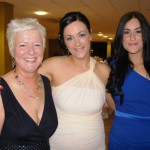This article appeared originally on Women’s Views on News.
I listened with a howling sense of pain-wracked frustration to the otherwise fabulous Jane Garvey interviewing domestic abuse survivor Tina Nash on BBC Radio 4’s Woman’s Hour yesterday morning (interview begins 1 minute in).
I’m used to victim-blaming and its ugly companion, the invisible perpetrator, in mainstream media coverage of domestic abuse.
But I’ve noticed it more and more since I became a Writer in Residence for Aurora New Dawn, an organisation working with victims and survivors of domestic and sexual violence.
Mainstream news media often just replicate dominant social attitudes and reflect them back to us with authority. It’s not right, or actually ok, but it’s the reason WVoN exists so I’ve made a sort of angry, activist peace with it. For now.
Listening this morning, though, I felt like Jane Garvey’s feminist teacher, standing on the sidelines and calling, “Come on Garvey, pull your socks up! You can do better than this!”
Here’s why.
I recommend that you listen to the interview before or after reading this. For me the questions are actually worse in context not better, but make up your own mind.
JG: It would be easy to think of you I suppose as a victim, but you’re more than that, aren’t you?
TN: I’m a survivor now.
This would have been a great opportunity to talk about the issue of victimhood, the journey to feeling like a survivor and the difference between the two. Nash herself brings this up several times in the interview after she raises it here.
She talks about how she did not perceive herself as a victim during the abuse even though it was so severe, and about how on many occasions Jenkin, her abuser, would convince her that he was actually the victim in the relationship.
Garvey follows up on none of these.
If you’re learning about domestic abuse for the first time, understanding the dynamic of victimhood is central. But if you’re a broadcaster doing an interview about an abusive relationship, I would hope – with a little preparation and research – it would be Interviewing 101.
After asking how they met, Garvey begins to sound a little like a barrister building a case that the victim should have ‘known better’:
JG: …he was a man with a bit of a reputation.
Nash obligingly clarifies that she had heard of his reputation, yes, but 10 years before they began dating, at which point Jenkin portrayed himself very much as a changed man.
Four months into the relationship, Jenkin pushed Nash over after his violence to strangers in a nightclub caused him to be thrown out. She banged her head on the pavement. Nash packed www.orderwu.com her things and left.
JG: See, at this point Tina, people will be thinking, ‘Well, that would be enough’. He may not actually have hit you on that occasion but there were indications that this was a man you wouldn’t be close to for any length of time. Why did you keep in touch with him?
Later, Nash talks about Jenkin laughing at the panic room installed for her by the police.
JG: He was laughing at the authorities and…but…in a way Tina I’ve got to put it to you, you allowed him to do that because you kept buying his lost little boy routine, didn’t you?
Finally, Garvey asks a question that is made more offensive to me as a listener by the calm, dignified and eloquent answer given by Tina Nash following it.
JG: For the people listening who think ‘Why did she allow this to happen to her?’ how would you try to explain that?
TN: It was a steady progress, it didn’t happen overnight. It wasn’t like I met him on the first night and he hit me and I stayed with him. It didn’t happen like that. I fell in love with him. He made me see a side of him that I didn’t think other people got to see so I thought he must love me. I thought it was completely different with me than he was with everybody else. Silly me, I fell for it.
At this point, I genuinely don’t know how, as one human to another, Garvey felt no inclination to challenge Tina Nash on that last statement. Possibly because almost every question that led up to it has implicitly pointed to how Nash failed to identify, challenge and escape a man who is now serving an indeterminate sentence in a mental hospital. I assume a jury put him there because they had fewer problems than Jane Garvey in identifying that he was the one to blame for his own behaviour.
Instead, Garvey asks:
JG: How many chances did you give him, in fact?
At which point I face-palmed myself so hard I swept my own feet out from under me and fell on my ass.
Given everything we know about domestic abuse, about patterns of coercion and control and about the reality of living – and surviving – an abusive relationship, it’s disappointing that broadcasters still feel comfortable asking variations of: Why doesn’t she just leave?
Chats overheard in the pub? Yes.
Woman’s Hour? No.
Interviews like this not only remove the focus from Jenkin’s actions but also – and if I were a man, this would be far more offensive to me – position the extreme violence of men like Jenkin as inevitable, or somehow to be expected, from all men.
What would I like to have heard? More about what it’s like to make the journey from victim to survivor, for a start, and an acknowledgement of the difficulty of the transition between the two.
Shame, isolation and self-blame are reasons that the Aurora team hear every day from victims and survivors to describe why they feel powerless to leave their perpetrator.
Of course, they also work with victims and survivors who have left and are now in more danger than they have ever been in before as a result – another reason why so many victims stay.
Media coverage of domestic abuse must start to reveal the reality (linked video carries Trigger warning) – and complexity – of abusive relationships, including painting a picture of how commonly it happens. As writers and journalists, we must shift the focus away from victims and move toward asking questions about perpetrators, who might find themselves with fewer places to hide as a result.
Taking this approach in the media would help to build a society where victims feel less isolated and less ashamed of behaviour that, ultimately, isn’t theirs. That alone would go an incredible length of the way to making the journey out of an abusive relationship easier and quicker.




